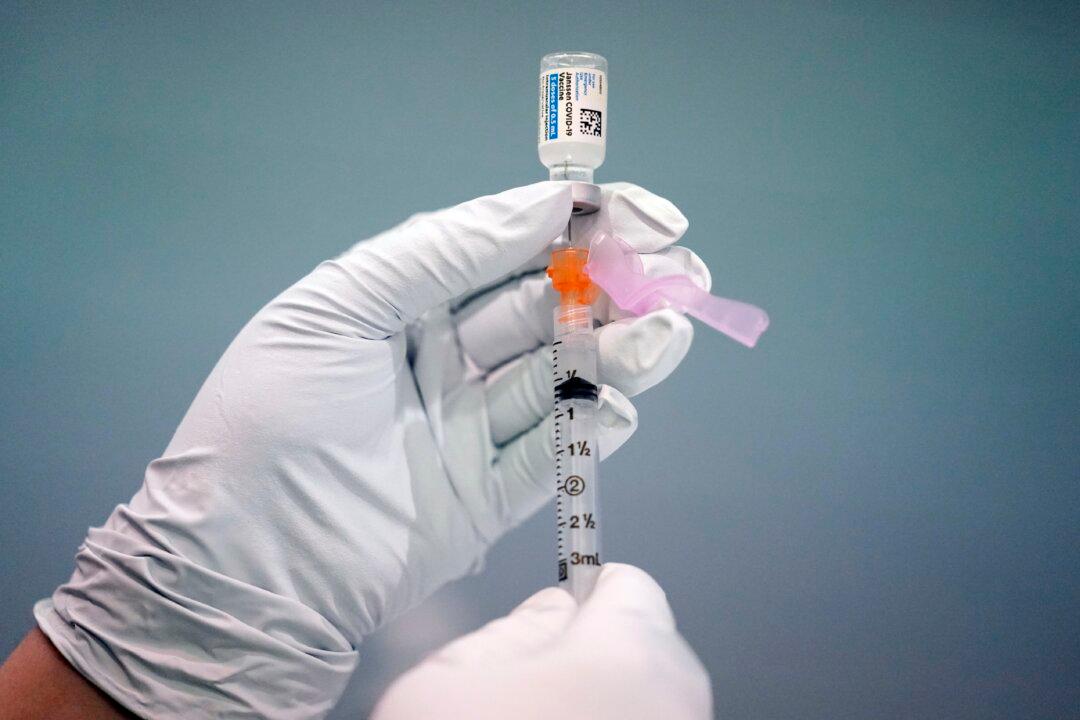A booster dose of Johnson & Johnson’s COVID-19 vaccine gives elevated protection against the virus that causes COVID-19, the company said Tuesday.
Johnson & Johnson said data from a Phase 3 clinical trial its researchers are helping run showed that a second shot of its vaccine provides 75 percent protection against symptomatic COVID-19 globally, and 94 percent effective against symptomatic COVID-19 in the United States.





